

editelJOURNAL
CORPORATE MAGAZINE OF THE EDITEL GROUP

EDI –a milestone in your digitalization strategy
Start of mandatory e-invoicing in Germany
Germany will require mandatory B2B e-invoicing from January 2025 under the ViDA initiative to close the EU’s VAT gap
Alfa Bio & Nagel: streamlined EDI logistics
ALFA BIO boosts logistics efficiency through EDI and a strategic partnership with Nagel Group, ensuring accurate, timely deliveries across Europe
Solana Pag: transforming business with eXite®
Solana Pag increases production efficiency and transparency, automates processes and optimises logistics with the eXite® platform
ARTICLES IN THIS ISSUE
3
Germany: mandatory e-invoicing starting January 2025
Germany will require mandatory B2B e-invoicing from January 2025 under the ViDA initiative to close the EU’s VAT gap
4 Alpine Electronics
Alpine Electronics optimized its automotive supply chain with EDI solutions supported by EDITEL
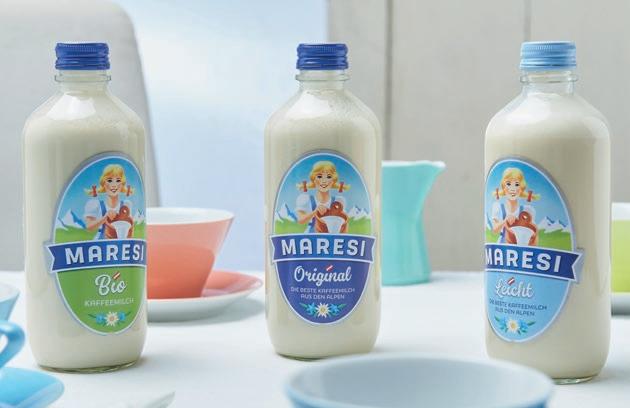
6
8
10
Connecting people, markets, and brands MARESI relies on smooth data communication with its suppliers, warehouse locations, haulage companies, and trading partners
Alfa Bio: streamlining logistics with Nagel Group through EDI
ALFA BIO boosts logistics efficiency through EDI and a strategic partnership with Nagel Group, ensuring accurate, timely deliveries across Europe
Transforming business at Solana Pag with eXite® Solana Pag increases production efficiency and transparency, automates processes and optimises logistics with the eXite® platform
EDITEL expands to Germany
Following the establishment of subsidiaries across Central Europe, EDITEL recently opened a German subsidiary in Eschborn
EDITORIAL

Gerd Marlovits CEO
Boundless connections
“Boundaries exist only in our minds,” as the renowned psychoanalyst Carl G. Jung recognized in the past century. In today’s ever-changing and interconnected world, the ability for cross-border communication and action has taken on a whole new relevance. Europe is a symbol of unity and economic collaboration, but also of increasingly complex challenges. Businesses now not only have to adapt to local needs, but also meet global market demands. Also, a plethora of new EU legislation such as ViDA needs to be met. This is where the decisive power of EDI comes in: this technology creates boundless connections between businesses, people, and markets throughout Europe.
Our solutions allow for swift and smooth processes, connecting business models across borders. They bridge the gap between traditional corporate structures and the digital age, helping our customers create sustainable and transparent business practices. The many examples presented in this issue showcase that digitalization and interconnection are a true driver of growth and change. Let’s team up to take this approach to the next level and let’s work together as partners to help you achieve your business goals. It is only in this spirit of togetherness that we will be able to define the geographical and technological boundaries of tomorrow.
Happy reading, Gerd Marlovits
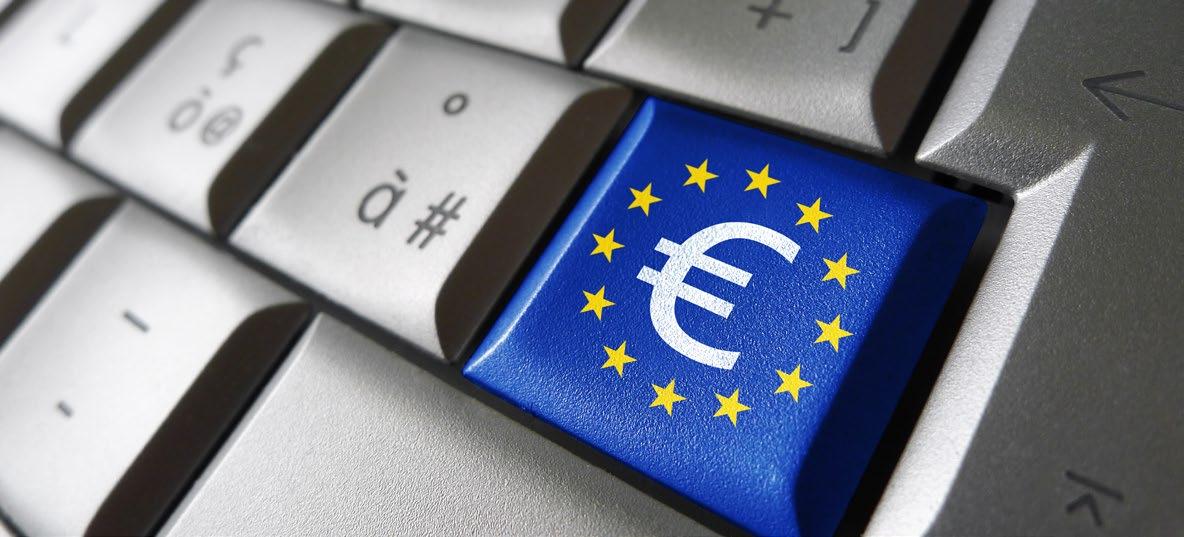
GERMANY: MANDATORY E-INVOICING STARTING 1 JANUARY 2025
ViDA is becoming a reality; that much is certain. What remains unclear is precisely when and how the timeline of the EU directive proposal will be implemented. Meanwhile, some European countries, like Germany, are moving ahead. In Germany, electronic invoicing will be mandatory in the B2B sector starting January 1, 2025.
For the European Union, the directive proposal ViDA (“VAT in the Digital Age”), designed to advance the digitalization of the VAT system, is a milestone. The goal is to close the VAT gap, which is the difference between expected and collected taxes in Europan Union member states. In 2021 alone, up to 61 billion euros went uncollected as a result of the VAT gap, according to numbers from the European Commmission. In Germany, the estimated loss was around 7.5 billion euros.
In this context, Germany decided to expand compulsory electronic invoicing from business-to-government (B2G) to include the business-to-business (B2B) sector as well. Following the enactment of the Growth Opportunities Act, the obligation for electronic invoicing will take effect on 1 January 2025 with transitional periods. In the future, only invoices issued, transmitted, and received in a specific structured electronic data format (CEN Standard EN 16931) will be recognized as electronic invoices (e-invoices). Among others, XRechnung, which is used in public procurement and other areas, and the hybrid ZUGFeRD format that combines a PDF document and XML file, meet these requirements.
EDI as a bridge builder
Gerd Marlovits, CEO of EDITEL Austria, comments on the e-invoicing mandate: “Structured invoices are an essential part of our expertise and we have been working with them since the 1990s. Electronic Data Interchange (EDI) is a great fit for the implementation of structured e-invoicing that complies with the new legal requirements. We expand our expertise in this area on an ongoing basis, integrating new standards and regulations.” Since its inception, EDITEL has been building bridges between the systems of involved companies, organizations, and public authorities and their respecitive requirements.
While Germany, where EDITEL recently opened a local subsidiary, is among the countries that are moving ahead with their own regulations for electronic invoicing and ViDA, many other European goverments have been working on this issue or are about to introduce their own requirements. For this reason, EDITEL, which serves clients in 30 countries, has set up a dedicated ViDA Competence Center. This center
will support businesses across Europe in implementing various national e-invoicing models. “This means that a single connection to EDITEL will give businesses access to all their business partners, regardless of their e-invoicing standards or systems. We assist companies in the B2B and B2G sectors with the legally compliant creation, validation, conversion, and transmission of electronic invoices. This is especially important as PDF invoices sent via e-mail will probably no longer be accepted in other European countries, with only e-invoices in a structured electronic data format that can be processed automatically being accepted,” explains Tomasz Kuciel, head of EDITEL’s ViDA Competence Center.
E-invoicing: cost-saving potential and future prospects
Finding efficient solutions to close the VAT gap is one part of the issue. Additionally, e-invoicing presents businesses with a new opportunity to make their operations more efficient, cost-effective, and sustainable. Tomasz Kuciel explains, “Currently, companies are missing out on significant cost-saving potential in invoicing alone, not to mention the sustainability benefits of e-invoicing through paper reduction. Structured e-invoices reduce manual error sources and make businesses future-ready for easier digital processing within
their ERP and inventory management systems as well as those of their business partners.” Sage, a business software provider and partner of EDITEL, explored the potential savings in its study “Electronic invoicing: paving the way for a connected real-time economy.” According to this study, electronic invoicing alone can reduce processing time by nearly half. As a result, small businesses in the EU (up to 49 employees) could save approximately 13,500 euros per year, medium-sized businesses (50 to 249 employees) around 34,500 euros, and large businesses (250 to 1,000 employees) around 49,700 euros annually.
E-invoicing is only the tip of the iceberg
Electronic invoicing in Europe will also pave the way for a more interconnected and more digital economy. Ultimately, an invoice is “just” a request for payment and as such is the last step in a complex series of business processes. “Structured e-invoicing is just the tip of the iceberg beneath which lies a multitude of other processes, from orders to delivery confirmations. Even today, EDI plays a key role in the digital interplay of these preceding processes and will continue to do so in the future. The ViDA initiative will accelerate the digital transformation of these upstream processes,” expains EDITEL CEO Marlovits, looking toward the future.
EDI SOLUTIONS FOR THE AUTOMOTIVE INDUSTRY
The factors that have significantly impacted the automotive industry include supply chain bottlenecks, the shift to electronic mobility, but also geopolitical challenges. Demanding times like these call for automated, streamlined, and efficient supply chain processes. For Alpine Electronics Manufacturing of Europe Ltd., Electronic Data Interchange (EDI) has been the major driving force behind optimized workflows across the entire value chain.
There is no doubt that the automotive industry is at a crossroads. Businesses face numerous challenges, not least maintaining stability across their own supply chains. This can make or break competitiveness, which is a key priority for Alpine Electronics, a manufacturer of audio and navigation devices, multimedia systems, and infotainment solutions. In an environment like this, standing still means falling behind.
Next-level precision with VMI
Alpine Electronics has been relying on Electronic Data Interchange (EDI) since 2015. With the introduction of its Vendor Managed Inventory (VMI) concept, Alpine aims to connect not only customers, but also as many suppliers as possible via digital processes. Suppliers include leading European companies
such as MURATA, KOA Europe, ROHM Semiconductor as well as businesses from the Far East. Worldwide, Alpine collaborates with nearly 40 partners via EDI.
First steps and the benefits of EDI
EDI made the need for reconciling Excel spreadsheets a thing of the past, and the many practical benefits of EDI soon convinced everyone. Virtually all corporate areas benefited from automated workflows, lower error rates, and, first and foremost, improved planning accuracy.
Éva Varga-Borsath, a logistics expert at Alpine Electronics, explains: “The automotive industry operates under a lot of time pressure because logistics processes oftentimes need to be timed down to the minute. Even small delays can have major effects. Errors in the EDI process practically never occur and are always a result of insufficient data preparation or internal system issues.”
Continuous evolvement and EDI for smaller partners
To connect small business partners who do not have their own EDI infrastructure, Alpine Electronics offers a web-based EDI solution. This solution allows smaller companies to participate in Electronic Data Interchange. Thanks to this extension, all suppliers are seamlessly integrated into the supply chain, regardless of their technical equipment.
Extending digital processes
In addition to basic processes such as:
n Long-term forecasts (DELFOR)
n Orders (ORDERS)
n Change orders (ORDCHG)
n Order confirmations (ORDRSP)
n Invoices (INVOIC),
the EDI process landscape now also includes additional areas such as:
n Inventory reports (INVRPT)
n Acknowledgments of receipt (RECADV)
n Payment advices (REMADV)
The exchange of forecast data with suppliers, which sometimes happens on a daily basis, allows for precise coordination across the entire supply chain.
EDI as a key element of the automotive industry
Éva Varga-Borsath summarizes the relevance of EDI as follows: “A key benefit of EDI is that it fully automates processes, making manual intervention obsolete. In the automotive industry, EDI has become a minimum requirement and ultimately offers nothing but advantages.” She also highlights the excellent collaboration with EDITEL, which supports Alpine Electronics in all questions and challenges.
About Alpine Electronics
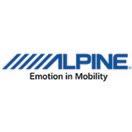
Alpine Electronics Manufacturing of Europe Ltd. is part of the global Alps Alpine Group, one of the leading manufacturers of audio, navigation, and multimedia systems. Since 1999, the plant in Biatorbágy, Hungary, has been supplying the European market. In addition to producing audio technology and navigation devices, the company started manufacturing power window switches and steering column components for premium vehicles in 2022.
www.alpsalpine.com
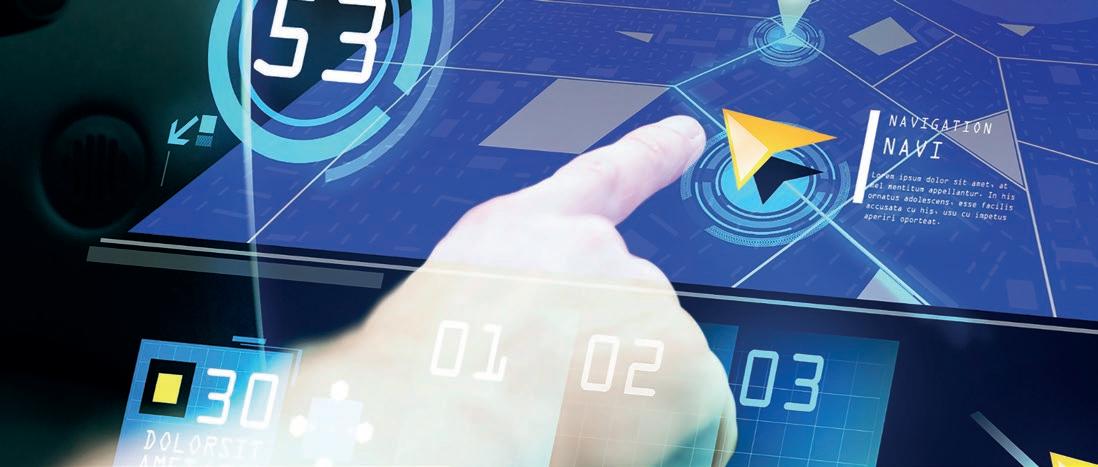

CONNECTING PEOPLE, MARKETS, AND BRANDS
As one of Austria’s leading branded goods providers, MARESI Austria, is fully committed to this task. Seamless data communication is at the heart of this endeavor. EDITEL has been instrumental in making things happen at MARESI.
Most Austrians still associate MARESI with the iconic coffee milk that will celebrate its 70th anniversary next year. And yet, there is much more behind this household brand name: MARESI Austria GmbH, part of the Austrian Vivatis Group, has evolved into a business group operating across Central and Eastern Europe. In addition to its well-known in-house brands like Knabber Nossi, Inzersdorfer, and of course, MARESI milk, the company also distributes a wide portfolio of international partner brands, such as Lay’s, Ovomaltine, and Isostar. To achieve success with 55 brands across five countries, intensive and often complex communication is key. According to Andreas Bassler, Head of Supply Chain Management at MARESI Austria, the challenge lies "primarily in connecting the many different suppliers, warehouse locations, logistics providers, and trading partners through a common language." For many years, MARESI has been relying on Electronic Data Interchange (EDI) to facilitate this. To make sure its EDI systems remain at the cutting edge of technology, MARESI brought EDITEL on board as its new EDI service provider about two years ago. Since then, a lot has happened...
Challenge accepted
When EDITEL began its collaboration with MARESI in 2022, it embarked on a herculean task: the entire data system needed to be migrated to the new ERP system SAP S/4 HANA, while simultaneously restructuring the existing EDI infrastructure. This project was challenging not only due to the volume of data—about 22,000 documents exchanged monthly with around 250 partners—but also because of the highly complex processes behind it, requiring an in-depth understanding of procedures, explains Karl Cegner, Project Delivery & Consulting Lead at EDITEL, who was responsible for this project. "EDITEL did an outstanding job here," said Andreas Bassler full of praise. The simultaneous execution of both projects and the fact that the two systems needed to be interconnected and work in real time demanded flawless coordination between all parties involved—MARESI, EDITEL, and SAP. As Cegner notes: "Even a small error or delay could have had far-reaching consequences for the entire data communication."
BENEFITS OF AN EDI SOLUTION:
n Faster onboarding process for new partners and support of international standards to facilitate growth.
n Increased speed and accuracy of business transactions, such as orders and invoices.
n Faster response to market demands and greater agility in dealing with partners and customers.
n Improved control of data flows and costs, leading to optimized collaboration with partners.
Efforts pay off
Following extensive quality assurance measures and half a year of rigorous testing, along with a carefully planned golive phase, the new SAP S/4 HANA system and the entire EDI outsourcing infrastructure at MARESI were successfully launched in May 2024, without any incidents. Andreas Bassler says with satisfaction: "All the testing was worth it. The project was a resounding success!" He especially highlighted EDITEL as "a very valuable and patient partner throughout the entire process." Looking ahead, he adds, "We have high hopes for our new EDI system and are convinced that it will enable even simpler and more cost-effective communication with our partners." Andreas Nentwich,
IN BRIEF
n Data migration to the SAP S/4HANA ERP system
n Simultaneous transition to a new EDI infrastructure
n Implementation of a complex order processing system that automatically splits orders by item, warehouse, and quantity.
n Precise configuration of data mappings and integration points between the new EDI system and SAP S/4HANA
n Optimized collaboration between MARESI, EDITEL, and SAP for fast, accurate, and cost-efficient communication.
n Intensive testing phase and carefully planned go-live ensured the successful conclusion of the project and a flawless start in May 2024

Managing Director of MARESI and Chair of the GS1 Advisory Board, also shares his positive view on the project: "EDITEL’s profound industry knowledge, along with its extensive business relationships with retailers, manufacturers, and logistics providers, were a great starting point for the efficient implementation of this project. Moreover, both EDITEL and MARESI share a common approach to stakeholder management: transparent, pragmatic action with clear goals and mutual respect, resulting in a positive outcome with long-term effect."
About MARESI Austria GmbH
MARESI Austria GmbH is one of the leading branded goods companies in Austria. Founded in 1949, the company, which belongs to the Vivatis Holding Group, has developed into a versatile brand builder. In addition to its own brands, such as MARESI, Knabber Nossi, Inzersdorfer, and Shan’shi, MARESI is a certified food broker for international partner brands such as Lay’s, Ovomaltine, and Twinings. With 186 employees and 55 brands, the MARESI Group, including subsidiaries in Hungary, Romania, the Czech Republic, and Slovakia, generated revenues of 146 million euros in 2023. www.maresi.com

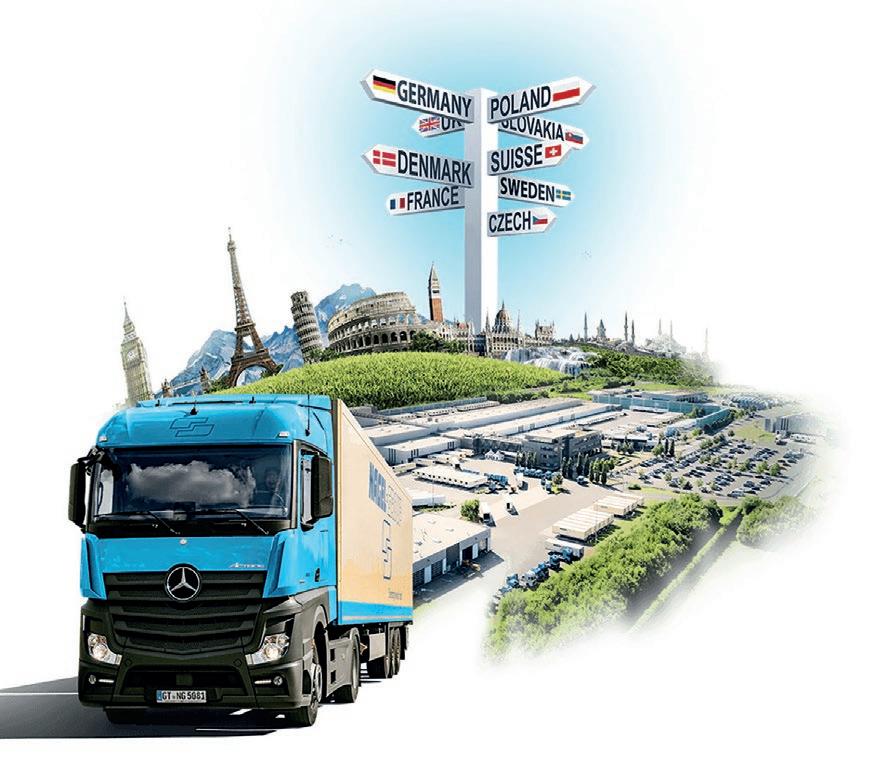
ALFA BIO: STREAMLINING LOGISTICS WITH NAGEL GROUP THROUGH EDI
The Slovak company ALFA BIO has taken a significant step toward modernizing its logistics operations, embracing digital communication to improve efficiency.
Central to its logistics strategy is a partnership with the international logistics company Nagel Group, a specialist in food transportation. This collaboration enhances ALFA BIO’s product flow, reduces errors, and enables quicker responses to evolving market demands.
To achieve these results, ALFA BIO leverages the benefits of Electronic Data Interchange (EDI), automating logistics processes and simplifying communications with logistics partners. In logistics, EDI is essential for accelerating processes, boosting efficiency, and maintaining precise inventory management.
ALFA BIO: expanding Europe’s access to healthy foods
ALFA BIO, renowned for its Lunter brand of healthy food products, ranks among Slovakia’s largest and fastest-growing producers of vegetarian and vegan foods. Its diverse offerings in-
clude tofu, spreads, drinks, and other plant-based alternatives, emphasizing quality, sustainability, and health. ALFA BIO is expanding into foreign markets, with a newly established company, Omami GmbH, to support growth in European countries, including Germany.
For over a decade, ALFA BIO has utilized EDI to communicate directly with various business partners and customers. Through its recent collaboration with Nagel Group, the company now manages logistics more effectively, ensuring timely, accurate deliveries. The EDI-based logistics system is fully operational, providing seamless communication between ALFA BIO’s warehouses and Nagel, enhancing inventory oversight and overall supply chain efficiency. With this system, ALFA BIO achieves heightened control over logistics processes, enabling swift responses to market shifts. The company employs various EDI reports to streamline operations:
DESADV OUT (despatch advice): ALFA BIO notifies Nagel about goods to be delivered to its logistics warehouse.
RECADV IN (receiving advice): Nagel confirms receipt and updates warehouse status.
INSDES OUT (delivery instructions): ALFA BIO provides distribution instructions to Nagel for each customer.
DESADV IN (delivery confirmation): Nagel confirms delivery to the final customer.
INVRTP IN (inventory status): Nagel provides an up-todate inventory overview, including batch details and expiration dates.
EDI: the key to efficient logistics
At ALFA BIO, EDI is recognized as vital for modern logistics. Beyond speeding processes and improving accuracy, EDI offers real-time stock visibility and rapid responses to customer needs.
The strategic partnership with Nagel Group has been instrumental for both companies. Through this collaboration, ALFA BIO and Nagel effectively manage stock and distribution domestically and internationally. Nagel’s expertise in food logistics and supply chain management provides ALFA BIO with a stable, efficient partnership. EDI automates processes, enables fast communication, and enhances clarity and operational efficiency, positioning both companies for successful expansion into European markets, ultimately strengthening their competitive advantage.
EDIFACT: UN/EDIFACT
EDIFACT: UN/EDIFACT (United Nations/ Electronic Data Interchange for Administration, Commerce and Transport) is a global inter-industry EDI message standard for electronic data interchange developed by the United Nations in the late 80s. UN / EDIFACT is used mainly in the FMCG sector, but also in the automotive industry and includes more than 200 different types of messages. It is used by hundreds of thousands of companies around the world.


About ALFA BIO
Founded in 1991 as a family business in Banská Bystrica, ALFA BIO began in a small basement factory, drawing inspiration largely from Asia. With steady growth fueled by family, supporters, and employees, the company invested in product development and modern technologies. Over 30 years later, ALFA BIO now operates from a state-of-the-art production complex, a testament to its growth. Its Lunter brand products are widely available across retail networks.

www.lunter.com
About Nagel Slovakia
Nagel Slovakia, part of the international Nagel Group, specializes in food transportation and storage across Slovakia. The company offers logistics services for chilled, frozen, and dry food products, ensuring deliveries from production facilities to end customers. Known for high quality, flexibility, and efficiency, Nagel Slovakia is a vital logistics partner for numerous food companies in the region.

www.nagel-group.com

TRANSFORMING BUSINESS AT SOLANA PAG WITH EXITE®
Solana Pag, Croatia’s largest sea salt producer, has taken a major step forward by integrating the eXite® platform to enhance its operations and optimize salt production processes. Leveraging the innovative eXite® service, Solana Pag has achieved new levels of transparency, efficiency, and control in its operations.
A standout feature of the eXite® platform is its seamless integration across business systems, allowing for smooth data exchange throughout the production chain. By using this service, Solana Pag has automated salt production tracking and management, reducing time spent on administrative tasks and focusing more on production. Additionally, the platform delivers detailed analyses and performance reports, empowering Solana Pag with insights that drive better decision-making and production optimization. This transparency and adaptability are essential for Solana Pag’s continued competitiveness in the sea salt market.
Through the successful implementation of the eXite® platform, Solana Pag has elevated its business, enhancing productivity, control, and competitiveness. This collaboration highlights the vital role that innovative technology plays in modernizing traditional industries like salt production.
Business transformation at Solana Pag with eXite®:
1. Production process automation: comprehensive automation of the salt production process has led to improved ef-

ficiency and minimized human error. From monitoring salt pond conditions to managing crystallization, every step is optimized for peak performance.
2. Advanced analytics: with cutting-edge analytical tools, Solana Pag gains deeper insights into production performance. By analyzing data on production volumes, salt quality, and demand trends, the company can make well-informed decisions for production planning and inventory management.
3. Optimized logistics chain: enhanced logistics management includes tracking raw material deliveries, coordinating shipments of finished products, and refining delivery routes. This results in lower transportation costs, reduced delivery times, and improved customer service.
4. Enhanced transparency and monitoring: achieving complete transparency across business processes enables real-time production tracking, inventory monitoring, and rapid response to challenges or market shifts.
5. Improved communication and collaboration: communication within the company and with external partners has been significantly improved. Teams across production, logistics, and inventory management can now coordinate effectively, ensuring smooth and efficient operations.
By integrating eXite®, Solana Pag has reinforced its commitment to innovation and continuous improvement, securing its
position as a leader in the Croatian sea salt industry. The platform enables Solana Pag to leverage the latest technologies, optimizing business processes and delivering top-quality products and services to customers.
About Solana Pag

Solana Pag is Croatia's largest sea salt producer, with a thousand-year history on the island of Pag. Situated south of the town of Pag on a 225-hectare expanse, Solana Pag thrives in a shallow lagoon, naturally suited to salt production thanks to its clay-based soil and ideal climate. Recognized by Croatia’s Ministry of Agriculture, Fisheries, and Rural Development, Pag sea salt has been awarded a protected designation of origin. Its purity and high quality have made it one of Europe’s finest salts. As global consumers become more aware of nutritional standards and health benefits, they increasingly favor authentic, traditional products that preserve the culinary identity of their regions.
Solana Pag maximizes the natural advantages of its location: a pristine environment, abundant sunshine, and favorable winds. As a result, Pag salt is among the purest and highest-quality salts in Europe and beyond, rich in essential minerals like calcium and magnesium that support metabolism and vital bodily functions.
www.solana-pag.hr

Owner and publisher:
EDITEL Austria GmbH, 1040 Vienna, Brahmsplatz 3; T: +43 (0)1/505 86 02; E: info@editel.at; W: www.editel.eu
EDITEL Austria GmbH is a wholly-owned subsidiary of GS1 Austria GmbH. The corporate objective of EDITEL Austria GmbH is the electronic data exchange between business partners, the sale of the required software and support services. Management and responsible for the content: Gerd Marlovits
Editorial staff: Anja Jung, Gül Altay
Proofreading: Dagmar Jenner, www.texterei.com
Layout: www.creativedirector.cc
Printing company: Print Alliance HAV Produktions GmbH
Disclosure pursuant to Austrian Media Law as amended in March 2009: the purpose of this newsletter is the promotion and support of EDITEL Austria‘s business activities.
Publication frequency: twice a year in English language with a circulation of 150 copies. The EDITEL Journal is also published in German, Czech, Slovak, Hungarian, Croatian and Polish languages. All issues are available as e-papers at www.issuu.com/editel_group.
